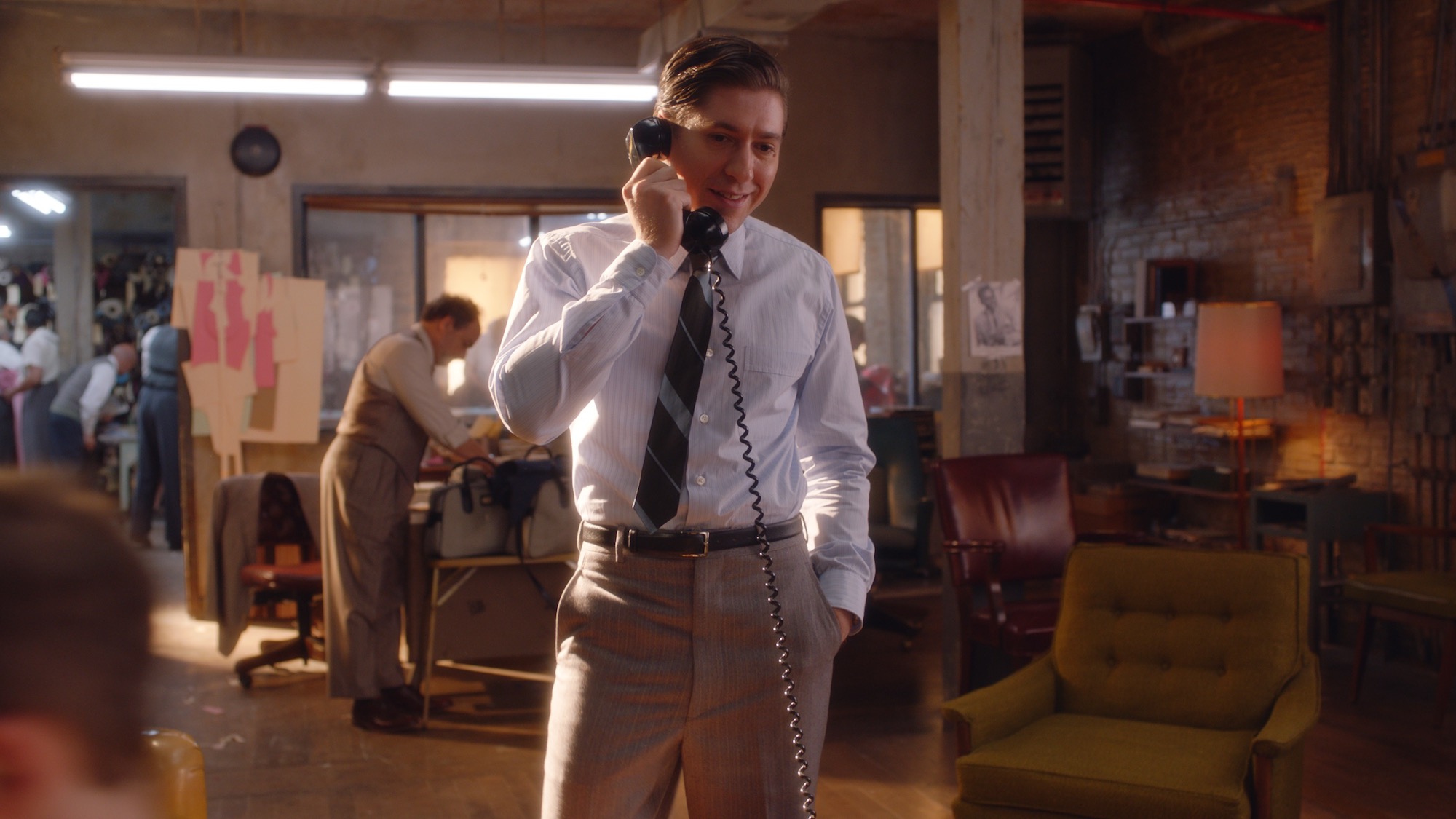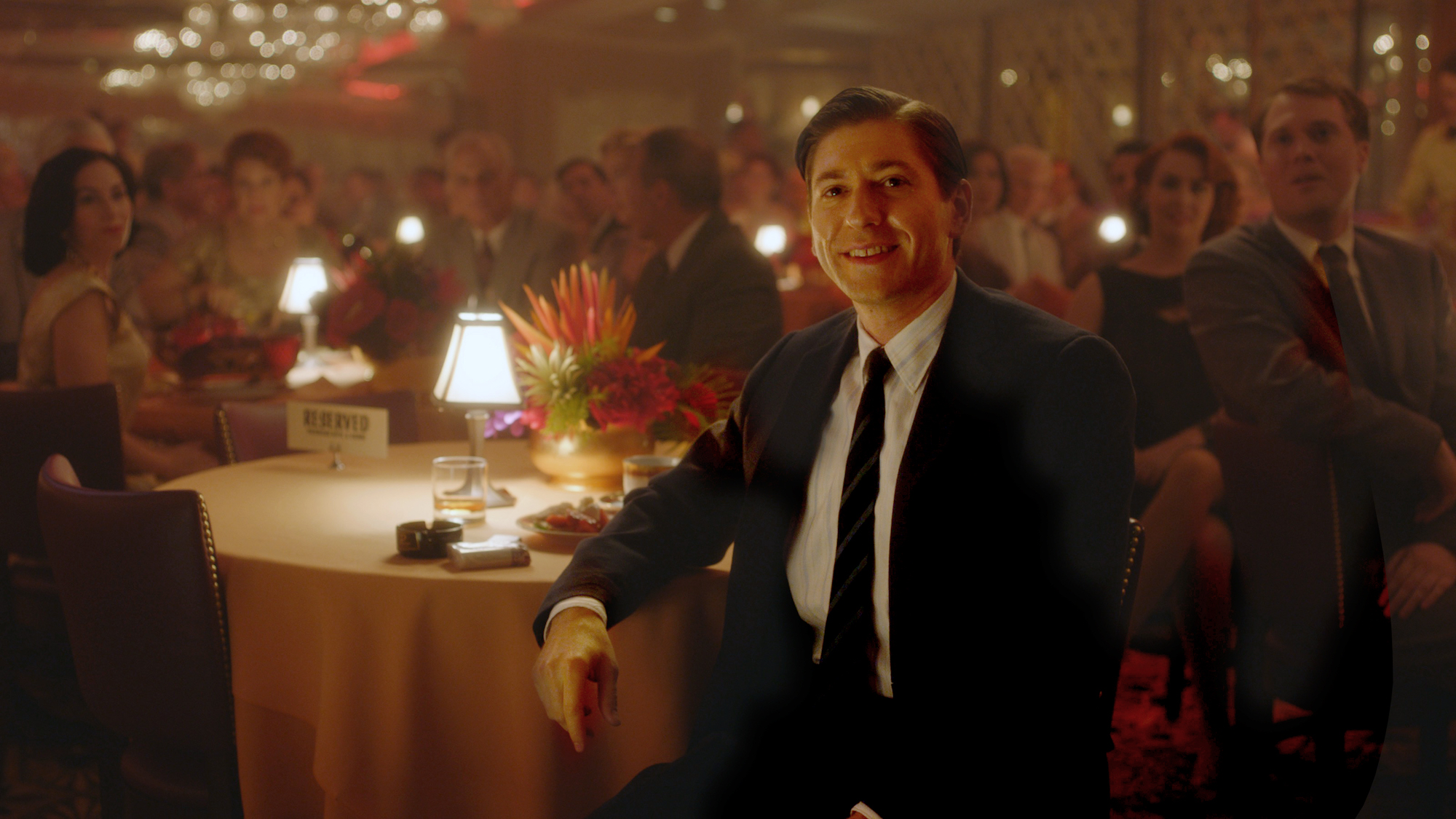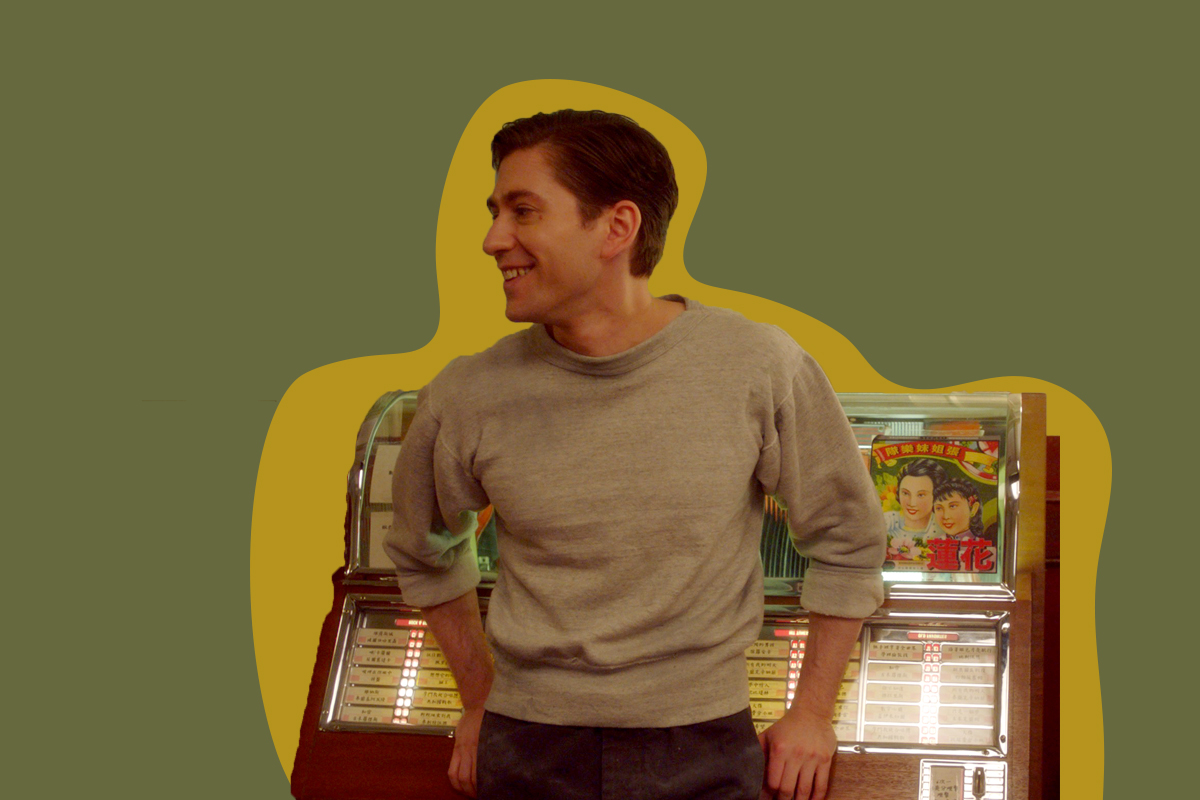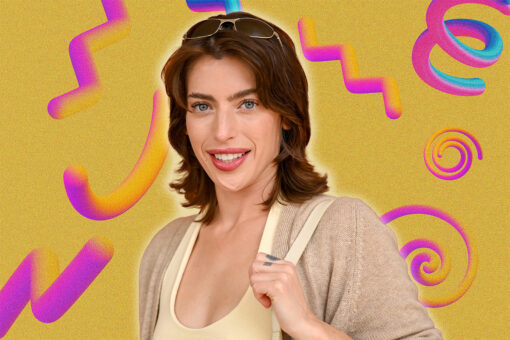Earlier this week, I went to a press day for The Marvelous Mrs. Maisel season three at a hotel in New York City. I was extremely nervous to meet Tony Shalhoub, very excited to meet Alex Borstein, but I didn’t really know what to expect from Michael Zegen, who plays the role of Midge Maisel’s ex-husband, Joel. I definitely did not expect to get flustered. Yet, I did.
Zegen, 40, was born and raised in a Jewish family in New Jersey. “My mom originally was from Brooklyn,” he explained to me. “Actually, her parents were from Europe, but they came here when my mom was 2. She was born in Austria in a DP camp. They came to Brooklyn, set up shop, didn’t have money, and just kind of made it happen. The American dream.”
DP camps, or displaced persons camps, were where many Holocaust survivors wound up once the war ended. Between 1945 and 1952, more than 250,000 Jews lived in DP camps administered by the United Nations. In prepping to talk to Zegen, I had read that his maternal grandparents were Holocaust survivors, but as we spoke, whatever thoughtful question I had prepared about them went out the window.
You know, I read, I was reading an interview with you. You talked about your parents being Holo — your grandparents, excuse me, being Holocaust survivors. Do they — are they — do they watch the show? Does your family watch—
Yes, that is the transcript of me stumbling over a question about his grandparents and whether they are still alive and what they think of the show. Thankfully, he got the gist.
“My grandmother’s still alive, she’s 95,” Zegen replied. “At her assisted living facility, they watch Maisel. I think I gave them a DVD, or somebody found them a DVD, and they have weekly showings of it.”
Chuckling, he continued, “My grandmother carries around this magazine with an interview with me everywhere. This dates back to even before she was in a home. And my mom still does it. They’ll talk to anybody. Strangers on the street, they’ll tell them that I’m an actor, and that I’m on Maisel. They’re proud.”
The biggest similarity between the Zegens and Maisels? “Probably just how much my parents annoy me.”
The biggest difference? “My father didn’t steal my bar mitzvah money.”

No stranger to playing Jewish characters, Zegen’s breakout role was Jewish gangster Bugsy Siegel in Boardwalk Empire, but his role as Joel in Maisel has undeniably made him a more recognizable face.
“I don’t want to get type-cast, but at the same time, if a character’s good, a character’s good,” he says. “I don’t know if I’m necessarily drawn to Jewish characters, but I probably am subconsciously. I understand it, it’s something that comes naturally to me.”
He continued, “I am fascinated with Jews in other areas. I just saw there was a book about Jewish pirates. I was like, Oh, that’s cool. I feel a sort of kinship — not necessarily [with] the pirates but the Jews, because somewhere down the line, I’m probably related to somebody.”
Besides his familiarity with Jewish people, Zegen says the biggest impact his Jewish background has on playing Joel is primarily his sense of Jewish guilt.
“I certainly understand [guilt] — it’s just ingrained in my body and brain. That’s something that I think Joel deals with, has dealt with, and will always deal with. And that’s not going away anytime soon. He’s constantly trying to prove that he’s a good person and make up for past mistakes.”
While Zegen is a Jewish actor playing a Jewish character in Maisel, he, like the rest of us, has many thoughts on the debates around cultural representation for Jews.
“People ask me, ‘Oh, am I offended that Rachel’s playing a Jewish character, and she’s not Jewish?’ Then basically what you’re saying is, I’m restricted to only playing Jews,” he said, referring to the non-Jewish star of the show, Rachel Brosnahan. “We’re actors, we should be able to play everything. I don’t have a problem with non-Jews playing Jews or Jews playing non-Jews. It’s acting. But it is something that people talk about now, and it’s a different time. And I don’t know! I don’t know what’s right and what’s wrong.”
Maybe, as Zegen hints at, there is no right answer. For me, I do not care when a non-Jewish actor plays a Jewish role (or else we wouldn’t have gotten Tony Shalhoub as the marvelous Abe Weissman). However, the representation debate doesn’t just center on Jews and non-Jews. It gets much worse when, for example, a cisgendered person is cast in a trans role, overlooking trans actors. Or a white actress is cast to play an Asian woman, white-washing a story. (One actress whom I will not name here, but you can probably guess, has done both!)
But back to The Marvelous Mrs. Maisel. In season three, we see Joel venture out on his own. He works on opening a comedy club and becomes the primary caretaker for his kids. Joel and Midge are navigating their relationship as co-parents — they’re not together, but they are entangled. Joel has gone from the cheating husband the audience is supposed to hate to a more sympathetic father figure, trying to make things work.

“Some people still hate him,” Zegen clarifies. “They can’t get past his wrongdoings. But, whatever! As an actor, I’m making people feel something, and there’s nothing better than that.”
Did Zegen expect Joel to go on the path he’s on? “No, I didn’t. I’m continually surprised.”
I, too, was surprised. And thinking on it now, I think Joel’s character arc hints at why I struggled to ask coherent questions in this interview. Joel, in this season, steps up. He becomes Midge’s biggest fan and supportive ex. And at least in the episodes I’ve seen so far, he is the only one in her family who cheers her on as she goes on tour and rises further in her career.
So it wasn’t Michael Zegen who made me trip over my words — okay, maybe it was a little, he is very cute — but the guy whom I’ve watched grow and push himself and support others, even his ex-wife, all while stepping up his familial duties and figuring out his own sense of purpose. Some might call that being a mensch. I’ll call it the Michael Zegen effect.
Images courtesy Amazon Prime.



